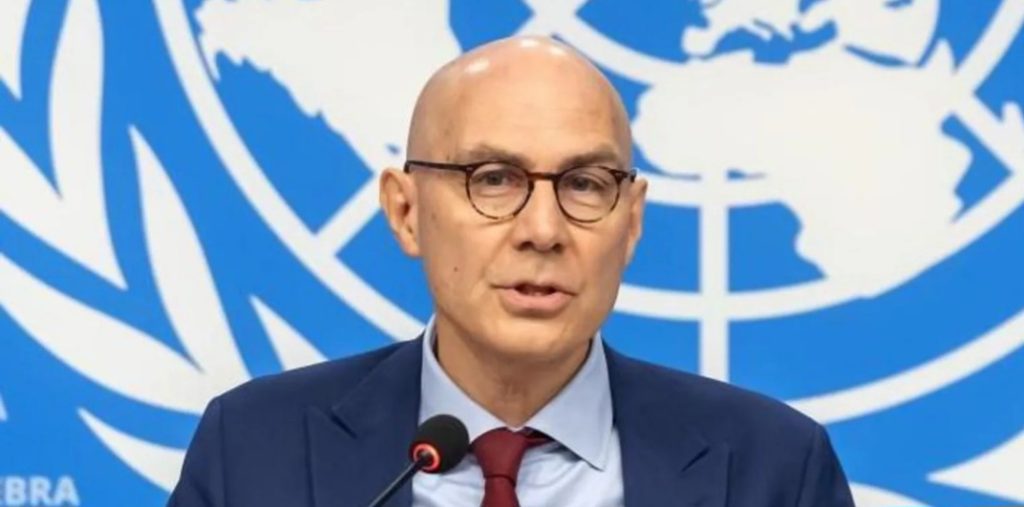
Crystal Dike
The UN’s human rights chief, Volker Türk, has condemned recent US military strikes on vessels allegedly carrying drugs in the Caribbean and Pacific, describing the attacks as violations of international law and “extrajudicial killings.”
Türk said on Friday that more than 60 people have reportedly been killed in US strikes since early September. Calling the operations “unacceptable,” he urged Washington to halt them immediately and conduct prompt, independent, and transparent investigations.
The US has defended the actions, with President Donald Trump insisting that the strikes are necessary to stem the flow of drugs into the United States. He maintains that he has the legal authority to continue targeting boats in international waters.
Türk, while acknowledging the challenges of combating drug trafficking, said the deadly strikes “find no justification in international law.” He stressed that countering illicit drug trafficking is a law-enforcement matter governed by international human rights standards limiting the use of lethal force.
“The intentional use of lethal force is only permissible as a last resort against individuals who pose an imminent threat to life,” he said. “Based on the very sparse information provided publicly by the US authorities, none of the individuals on the targeted boats appeared to pose such a threat.”
He called on the US to adopt law-enforcement measures such as intercepting vessels and detaining suspects, and where appropriate, prosecuting them.
According to US Defence Secretary Pete Hegseth, most of the strikes have taken place off the coast of South America in the Caribbean, though attacks in the Pacific this week killed at least 18 people. The US has deployed troops, aircraft, and naval vessels to the region and last week ordered the world’s largest warship—the USS Gerald R. Ford—to the Caribbean.
The strikes have drawn condemnation across Latin America, and legal experts have questioned their legitimacy. In Washington, several members of Congress from both parties have also expressed concern about the president’s authority to order such operations.
Mexican President Claudia Sheinbaum said her government “does not agree with these attacks” and has requested meetings with the US ambassador, insisting that “all international treaties be respected.”
The US actions have further strained relations with Colombia and Venezuela. Washington recently imposed sanctions on Colombian President Gustavo Petro, accusing him of allowing drug cartels to “flourish.” Petro rejected the claims, saying he has fought drug trafficking “for decades.”
Trump has also accused Venezuelan President Nicolás Maduro of leading a drug-trafficking organisation—an allegation Maduro denies. Venezuela’s attorney general told the BBC there is “no doubt” Trump is trying to overthrow the Venezuelan government and seize its natural resources, including gold, oil, and copper.
The United States remains among the countries that do not recognise Maduro as Venezuela’s legitimate leader, following the disputed 2024 election widely dismissed as neither free nor fair. Opposition tallies from polling stations indicated their candidate had won by a landslide.
